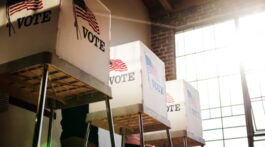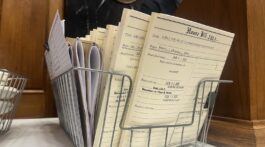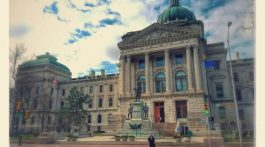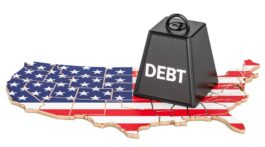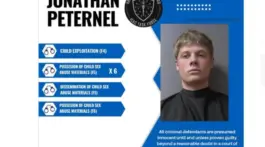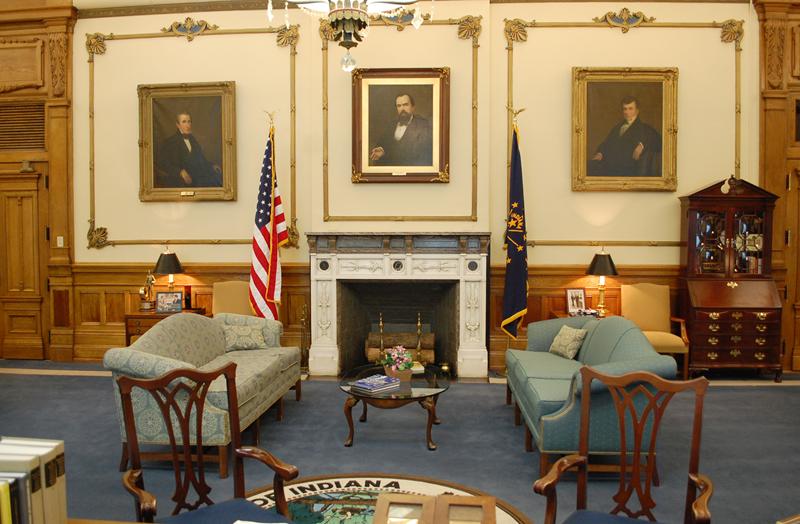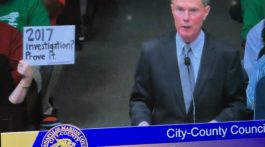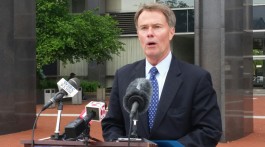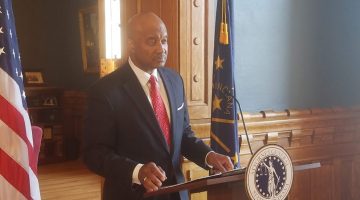The Democratic, Republican and Libertarian candidates for governor of Indiana have agreed to debate three times in televised debates organized by the Indiana Debate Commission.
Participating will be Democrat John Gregg, Republican Eric Holcomb and Libertarian Rex Bell.
The first debate, previously tentatively scheduled, will be Sept. 27 at Lawrence North High School in Indianapolis. The second will be Oct. 3 in Ransburg Auditorium at the University of Indianapolis and the third Oct. 25 at the University of Southern Indiana in Evansville.
The Sept. 27 debate, in the style of a town hall meeting, will be 10:30 a.m. to 11:30 a.m. EDT. It is being held in the morning because it is designed partly as an educational lesson for students throughout Indiana in partnership with Indiana Kids’ Election, a program sponsored by the Indiana secretary of state, Indiana Department of Education and Indiana State Bar Association. It will be webcast live by public television station WFYI to schools, and the webcast also will be made available to television stations and news organizations for viewing by the public live. In addition, it will be offered to television stations for broadcast later.
The second and third debates will be made available to television stations for broadcasting live 7 p.m. to 8 p.m. Eastern time. The IDC’s broadcast partner for the Oct. 3 debate is WIPB, the public television station at Ball State University in Muncie. The broadcast partner for the Oct. 25 debate is WFIE, the NBC affiliate in Evansville.
“We are thrilled to be able to make the candidates available to the public so that voters can learn the candidates’ vision for Indiana firsthand,” said Dan Byron, president of the debate commission. “Our motto since our organization’s founding has been ‘Putting Voters First,’ and that is what we are doing with these debates.”
Members of the public can submit questions they would put to the candidates. Questions can be submitted to the IDC through its website athttp://indianadebatecommission.com. From the submitted questions, the debate commission will select questions on a variety of topics for use in the debates.
The audience at the Sept. 27 debate will be composed entirely of high school students, teachers and school administrators who will hear the candidates’ positions primarily on educational issues, with some questions posed by students. There are no tickets for the general public. University of Indianapolis assistant professor of political science Laura Merrifield Albright will moderate.
The Oct. 3 debate will focus on the topics of jobs and the economy, with John Ketzenberger, president of the Indiana Fiscal Policy Institute, moderating. Tickets, which are free, are available at the University of Indianapolis at http://uindy.edu/debate2016. Those wanting to obtain tickets will need to establish an online account at the website. Tickets are limited to four per person.
Topics of the Oct. 25 debate will focus on health and social issues, with Mizell Stewart III, vice president of news operations for Gannett and USA Today Network, president of the American Society of News Editors and former editor of the Evansville Courier & Press. Ticketing information for that debate will be announced soon.
The debate commission also continues to work on arranging two televised debates among U.S. Senate candidates Democrat Evan Bayh, Republican Todd Young and Libertarian Lucy Brenton. Details of those debates also will be announced soon.


